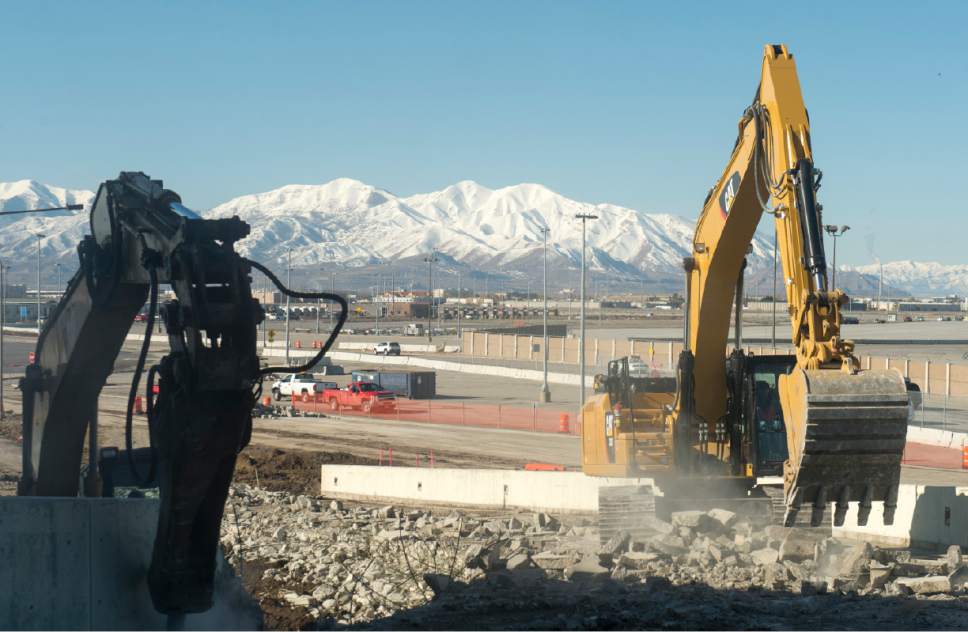This is an archived article that was published on sltrib.com in 2017, and information in the article may be outdated. It is provided only for personal research purposes and may not be reprinted.
Let's start by stating the obvious. We're not going to build a $2 billion airport and make people walk a quarter mile to get to it.
There is a standoff over who will pay $68 million to extend Utah Transit Authority's TRAX line into Salt Lake City International Airport's new terminal. UTA says it has only committed to cover about $15 million, and that was based on a long-ago assumption that it would merely be extending the track and building a new station similar to the current one. Airport design since then includes elevating the track and building a skybridge to the new terminal.
UTA CEO Jerry Benson says former Mayor Ralph Becker informally committed the city to help with the more expensive plan, but current Mayor Jackie Biskupski is pushing back, saying UTA has to find the money.
In an email obtained by The Tribune, Benson told a colleague after a "tense" meeting with Biskupski in March that "the city will not contribute to the cost of the airport (TRAX) station."
When a Tribune reporter asked for an interview with Biskupski on this last week, her office declined, saying, "UTA has to decide what level of services they want at the airport. The city's providing a world-class airport that serves the entire state."
That is a bluff, which is probably why the mayor doesn't want to talk about it. Ultimately, her city needs a fully integrated light rail station at the airport. The alternative — a ground-level station 1,200 feet away from the terminal — is not an actual alternative.
UTA also is posturing, offering a list of possible funding alternatives that included the option of hefty cuts to bus service in the city. Even Benson knows that's a non-starter.
Both Benson and Biskupski face unbending realities. For Benson, it's that UTA is financially maxed. It can't raise taxes, and it can't add to its $2 billion debt, until public trust has improved.
For Biskupski, it's an airport that is already $350 million over budget. Those costs are covered by the fees charged to airlines, but the biggest airline has had enough. Delta Airlines got Utah legislators to pass a law that prohibits those airport fees from covering the transit system. (The city and UTA may have been slow to solve this, but Delta saw it coming a while ago.)
What's more, if the city cries poverty and goes to the Legislature for more airport money, it risks the state wanting more control over Salt Lake City International in exchange.
Ultimately, neither Benson nor Biskupski has a great hand, which is why they need to stop playing poker and find a way to work together.



